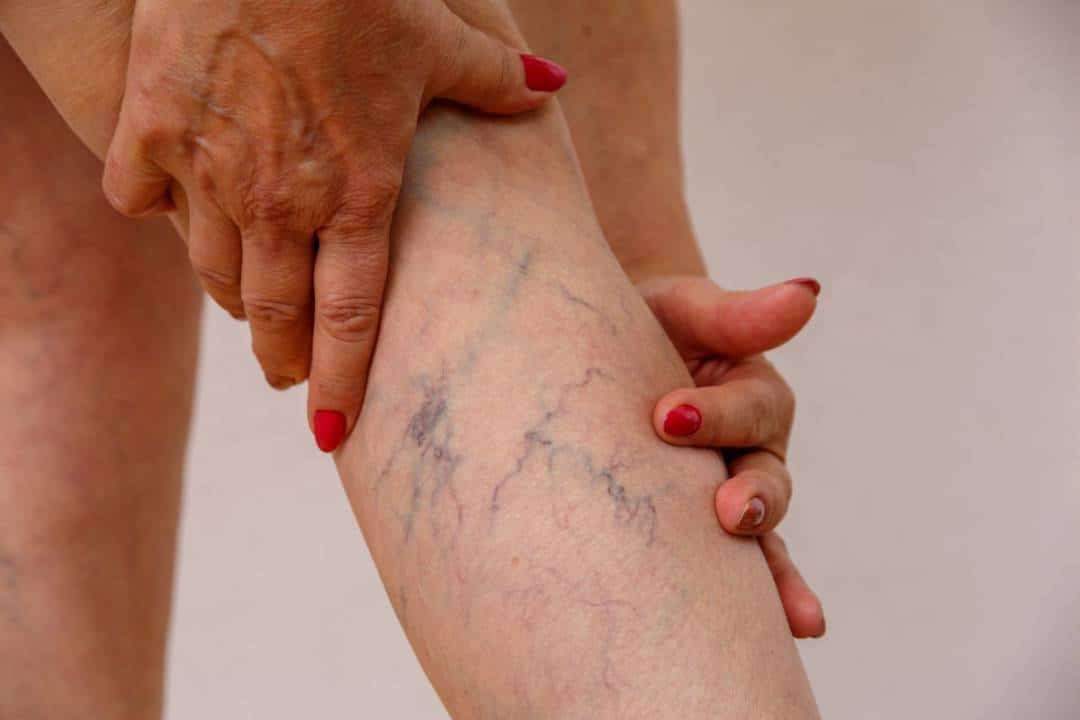
Are Varicose Veins Dangerous?
Varicose veins are an indication of vein disease and are commonly regarded as a cosmetic concern. They can produce a variety of painful and unpleasant symptoms, as well as put you at risk for significant health problems such as blood clots and ulcers. If you’re worried about a varicose vein condition, we recommend seeing a vein specialist for a thorough examination.
When Are Varicose Veins Dangerous?
Varicose veins become dangerous when they can lead to bleeding veins, deep vein thrombosis (DVT), supraventricular tachycardia (SVT), venous ulcers, and lipodermatosclerosis, among other health problems. We will go over these conditions in detail below, as well as what to look out for to guarantee a good outcome when seeking treatment.
1. Bleeding Varicose Veins
If an accident occurs, varicose veins near the surface of the skin might rupture or bleed. This disorder is also known as leaky veins and is usually painless. Varicose veins tend to bleed when their walls flex and weaken due to pooled blood. When there is a lot of bleeding, it can be life-threatening.
2. Supraventricular Tachycardia (SVT)
This word refers to a condition in which the upper chamber of the heart experiences rapid or irregular heartbeats. As a result of aberrant electrical impulses in the heart, the heart rate increases, affecting blood flow throughout the body.
Common symptoms include:
- Heart-Pounding
- Heart Palpitations
- Dizziness
- Lightheadedness
- Fainting or near fainting episodes
- Fatigue or lack of energy
- Shortness of breath
- Chest discomfort
- Throat tightness
- Sweating
Your cardiovascular system may be harmed by SVT. Because a sick heart requires the veins and arteries to work harder to compensate Treatment for both SVT and varicose veins may be required to alleviate symptoms.
3. Deep Vein Thrombosis (DVT)
A blood clot in the deep venous system can cause DVT, which is a dangerous health problem. Because deep veins are hidden between muscles, they are not apparent to the naked eye. This can lead to a pulmonary embolism, which is a life-threatening condition that can occur when it breaks out from its original position. Seek medical help right away if you have sudden leg pain and swelling, shortness of breath, coughing, chest pain, clamminess, or fever.
4. Leg Ulcers
A leg ulcer is a painful sore that develops as the skin on the leg deteriorates. Air and bacteria penetrate the tissue as the skin breaks down. As a result of pressure in the vascular system, poisonous situations can cause ulcers. In fact, leg ulcers are caused by veins that aren’t functioning properly in about 80% of cases. Varicose veins can develop as a result of the same underlying problem known as vein disease or venous insufficiency.
5. Lipodermatosclerosis
Some types of varicose veins are less well-known. If you have vein disease, you’re more likely to develop lipodermatosclerosis, an inflammatory disorder that affects the subcutaneous fat in the lower thigh. The illness resembles cellulitis, a form of skin infection, in its early stages. Pain, swelling, and redness are some of the symptoms. As the problem worsens, it develops into a chronic condition that can cause the skin to harden or thicken. Increased pigmentation or little white scars may also be visible in the area.
Women are more likely than men to have this illness. It frequently affects people who have chronic venous insufficiency or varicose veins, though the link between these disorders isn’t fully known. If you have symptoms, consult your doctor. As quickly as possible.
When To See A Doctor About Varicose Veins.
A visit to a vein specialist is the best method to find out if your varicose veins are deemed significant. Vein therapy can help relieve uncomfortable symptoms while also lowering your chance of problems.
We always advocate having varicose veins evaluated by a vein specialist since they might be harmful. In our state-of-the-art treatment centre in Toronto, our highly skilled vein specialist is available to evaluate your vein health.
We normally recommend the finest vein disease treatment if you have varicose veins or other venous symptoms. Contact The Vein Institute Toronto today to get a customized treatment plan by calling or booking an appointment online.

Recent Comments